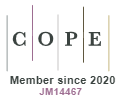Contribuições da teoria dos commons para o KBD, utilizando dados como um bem comum
DOI:
https://doi.org/10.5585/geas.v10i1.18231Palavras-chave:
Desenvolvimento baseado em conhecimento, Teoria dos bens comuns, Bens comuns urbanos, Bens comuns de conhecimento, Cidades inteligentes.Resumo
Objetivo: Desenvolvimento Baseado em Conhecimento (KBD) é um campo científico multidisciplinar baseado no processo endógeno de criação de valor de compartilhamento de conhecimento. A Teoria Comum de Ostrom, por sua vez, explica como uma comunidade consegue compartilhar um recurso comum limitado sujeito a conflitos sociais. Este artigo revisa a literatura disponível em ambos os campos e pretende responder à questão de pesquisa sobre se e como a Teoria dos Commons pode contribuir para melhor compreensão do campo de KBD.
Metodologia: Análise qualitativa buscando semelhanças sobre as teorias, bem como estudos empíricos que pudessem trazer diferentes lentes para auxiliar na análise e identificar as contribuições da Teoria dos Commons para o campo do KBD.
Originalidade: A recente análise de artigos publicados em periódicos de alto impacto revela a falta de conexão entre commons e KBD.
Contribuições para a gestão: O KBD reúne grupos de pessoas que compartilham recursos tangíveis e intangíveis. A Teoria dos Commons de Ostrom, por outro lado, explica como uma comunidade de pessoas consegue compartilhar um recurso comum limitado sujeito a conflitos sociais. Este artigo aproxima os dois campos de conhecimento, buscando contribuir para o desenvolvimento do campo do KBD.
Resultados: Para os autores, a pesquisa mostra que os dados abertos como novos bens comuns são importantes para melhorar o desenvolvimento econômico do conhecimento como matéria-prima para o desenvolvimento de softwares e aplicativos que contribuem para o desenvolvimento das cidades, gerando empreendedorismo e contribuindo para o ecossistema de inovação.
Downloads
Referências
Allen, D. W. E. & Potts, J. (2016). How innovation commons contribute to discovering and developing new technologies. International Journal of the Commons, 10, 2–20.
Batra, S. (2007). Knowledge Enterprises, Knowledge Economies, Knowledge Divide and Knowledge Societies: A Conceptual Framework. giftjourn@ l, 3(1), 13-20.
Batra, S. (2012). Development perspectives of knowledge management, Review of Knowledge Management, 2(1), 17-23.
Beckwith, R., Sherry, J., Prendergast, D. (2019). Data Flow in the Smart City: Open Data Versus the Commons. In: M. de Lange & M. de Waal (Eds.), The Hackable City. Springer, Singapore. Retrieved from: <https://doi.org/10.1007/978-981-13-2694-3_11>.
Carrillo, F. (2014). What ‘knowledge-based’ stands for? A position paper. Journal of Knowledge-Based Development, 5(4), 402–421.
Carrillo, F. (2015). Knowledge-based development as a new economic culture. Journal of Open Innovation: Technology, Market, and Complexity, 1 (2), 15.
Carrillo, F. J. (2002). Capital Systems: Implications for a global knowledge agenda. Journal of Knowledge Management, 6, 379-399.
Carrillo, F. J. (2004). Capital Cities: A taxonomy of capital accounts for knowledge cities. Journal of Knowledge Management, 8, 28-46.
Carrillo, F. J., & Batra, S. (2012). Understanding and measurement: perspectives on the evolution of knowledge-based development. International Journal of Knowledge-Based Development, 3(1), 1-16.
Carrillo, F. J., & Flores, R. E. (2012). Measuring: Knowledge-based development metrics, evolution and perspectives. In T. Yigitcanlar, K. Metaxiotis, & F. J. Carrillo (Eds.), Building prosperous knowledge cities: Policies, plans and metrics (pp. 309–326). Edward Elgar Publishing.
Carrillo, F., Metaxiotis, K., & Yigitcanlar, T. (2010). Urban, regional, national and global knowledge capital. (G. Editorial, Ed.) Journal of Knowledge Management, 14, 631-634.
Cohen, B., Almirall, E, and Chesbrough, H. (2016). The City as a Lab: Open Innovation Meets the Collaborative Economy. California Management Review, 59(1), 5–13.
Cruz, M. (2019). O comum urbano em debate: dos comuns na cidade à cidade como comum? Revista Brasileira de Estudos Urbanos Reg., 21(3), 487–504.
Errichiello, L., & Marasco, A. (2014). Open service innovation in smart cities: A framework for exploring innovation networks in the development of new city services. Advanced Engineering Forum, 11, 115–124.
Ergazakis, K., Metaxiotis, K., & Psarras, J. (2006). Knowledge cities: The answer to the needs of knowledge-based development. VINE: The Journal of Information and Knowledge Management Systems, 36, 67-84.
Fachinelli, A. C., Carrillo, F. J., & D’Arisbo, A. (2014). Capital system, creative economy and knowledge city transformation: Insights from Bento Gonçalves, Brazil. Expert Systems with Applications, 5614-5624.
Ferreira, S., & Neto, M. (2005). Knowledge Management and Social Learning: Exploring the Cognitive Dimension of Development. Knowlegde Management for Development, 1(3), 4-17. Retrieved from: http://www.km4dev.org/journal: http://www.km4dev.org/journal.
Foster, S. (2013). Collective Action and the Urban Commons. Notre Dame Law Review, 87, 57. Retrieved from: <http://scholarship.law.nd.edu/ndlr/vol87/iss1/2>.
Frischmann, B., Madison, M., & Strandburg, K. (2014). Introduction & Chapter 1. In M. J. Brett M. Frischmann, Governing Knowledge Commons. Oxford University Press. 1- 43.
Gonzalez, M., Alvarado, J., & Martinez, S. (2005). A compilation of resources on knowledge cities and knowledge-based development. Journal of Knowledge Management, 8, 107-127.
Hardt, M., & Negri, A. (2009). Commonwealth. Harvard University Press.
Harvey, D. (2008). The right to the city. The city reader, 6(1), 23-40.
Harvey, D. (2011). The Future of the Commons. Radical History Review, 109, 101-107. Retrieved February 19, 2018, from https://read.dukeupress.edu/radical-history-review/article/2011/109/101/75136/The-Future-of-the-Commons
Harvey, D. (2012). Rebel Cities: From the Right to the City to the Urban Revolution. New York. Retrieved February 2018, from: <http://abahlali.org/files/Harvey_Rebel_cities.pdf>. Verso Books: London and New York, 2012, pp. xviii + 187.
Hess, C. (2008). Mapping the New Commons. 12th Biennial Conference of the International Association for the Study of the Commons. Cheltenham, England.: Retrieved from https://papers.ssrn.com/sol3/papers.cfm?abstract.
Hess, C. & Ostrom, E. (2007). A Framework for Analyzing the Knowledge Commons. In E. Ostrom, Understanding Knowledge as a Commons: From Theory to Practice (pp. 41-81), MIT Press.
Janssen, M., Charalabidis, Y., & Zuiderwijk, A. (2012). Benefits, Adoption Barriers and Myths of Open Data and Open Government. Information Systems Management, 29(4), 258-268.
Jasanoff, S. (2004). Ordering Knowledge, Ordering Society. In States of Knowledge: Science, Power and Political Culture. Routledge, 25–98.
Kaunekis, D. (2014). Researching Complex Governance Arrangements: Elinor Ostrom's Legacy for Research Methods and the Analysis of Institutional Design, Policy Matters,19, 69-78.
Knight, R. (1995). Knowledge-based development: policy and planning implications for cities. Urban Studies, 32, 225-260.
Lara, A., Da Costa, E., Furlani, T. Z., & Yigitcanlar, T. (2016). Smartness that matters: towards a comprehensive and human-centred characterisation of smart cities. Journal of Open Innovation: Technology, Market, and Complexity, 2, 8.
Laszlo, K. C., & Laszlo, A. (2007). Fostering a Sustainable Learning Society through Knowledge Based Development. Systems Research and Behavioral Science. Syst. Res., 24(5), 493-503.
Lefebvre, H. (2008). O direito à cidade. 5a. Edição. Centauro Editora.
Lee, M., Almirall, E.& Wareham, J. (2016). Open Data and Civic Apps: First-Generation Failures, Second-Generation Improvements, Communications of the ACM, 59(1), 82-89.
Madison, M., Frischmann, B., & Strandburg, K. (2010). Constructing Commons in the Cultural Environment. Cornell Law Review, 95, 657-709.
Marques, M.A.J., Sabatini-Marques, J., Garcia, B.C., & Cortese, T.T.P. (2020). Contribution to Knowledge-based Development from the Commons Theory. In: T. Goydke & G. Koch (Eds.) Economy for the Common Good: A Common Standard for a Pluralist World? Tredition, Germany.
Moreira, S.; Fuster, M. (2020). Food Networks As Urban Commons: Case Study of a Portuguese “Prosumers” Group. Ecological Economics, 177, n. June 2019, 106777. Retrieved from: <https://doi.org/10.1016/j.ecolecon.2020.106777>.
Muñoz-Erickson, T.A, Miller, C.A, & Miller, T.R. (2017). How cities think: knowledge co-production for urban sustainability and resilience. Forests 8(6), 203.
Nam, T., & Pardo, T. A. (2011). Conceptualizing smart city with dimensions of technology, people, and institutions. In 12th Annual International Digital Government Research Conference: Digital Government Innovation in Challenging Times (pp. 282–291).
Niaros, V. (2016). Introducing a taxonomy of the “smart city”: Towards a commons-oriented approach? tripleC: Communication, capitalism & critique. Open Access Journal for a Global Sustainable Information Society, 14, 51–61.
Nightingale, A. (2011). Beyond design principles: Subjectivity, emotion, and the (Non)rational commons. Society and Natural Resources, 24, 119-132.
Ng, H. (2020). Recognising the edible urban commons: Cultivating latent capacities for transformative governance in Singapore. Urban Studies, 57, 1417–1433.
Norström, A. et al. (2020). Principles for knowledge co-production in sustainability research. Nature Sustainability, 3(3), 182–190.
O'Reilly, T. (2011). Government as a Platform. Innovations: Technology, Governance, Globalization, 6(1), 13-40.
Ostrom, E. (1990). Governing the Commons: The evolution of institutions for collective action. (I. University, Ed.) Cambridge University Press.
Ostrom, E., & Hess, C. (2007). A Framework for Analyzing the Knowledge Commons. In C. H. Ostrom (Ed.), Understanding Knowledge as a Commons: From Theory to Practice. MIT Press.
Ostrom, E. (2009). Beyond Markets and States: Polycentric Governance of Complex Economic Systems. Prize lecture, pp. 408-444.
Phelps, Edmund (2013). Mass Flourishing: How Grassroots Innovation Created Jobs, Challenge, and Change. Princeton University Press.
Repette, P., Sabatini-Marques, J., Yigitcanlar, T., Sell, D., & Costa, E. (2021) The Evolution of City-as-a-Platform: Smart Urban Development Governance with Collective Knowledge-Based Platform Urbanism. Land, 10(33). https://doi.org/10.3390/ land10010033
Sabatini-Marques, J. (2020). Dados usados para o bem comum desenvolvem ecossistemas de inovação. Available in: https://itforum.com.br/coluna/dados-usados-para-o-bem-comum-desenvolvem-ecossistemas-de-inovacao/, Accessed on: 19th January 2021.
Sardeshpande, M., Rupprecht, C., & Russo, A. (2021). Edible urban commons for resilient neighbourhoods in light of the pandemic. Cities, 109, 103031. Retrieved from: https://doi.org/10.1016/j.cities.2020.103031
Schmelzkopf, K. (1995). Urban community gardens as contested space. Geographical review, Vol. 85, 364-381.
Schumpeter, J. (1911). The Theory of Economic Development. Oxford University.
Schuttenberg, H. Z. & Guth, H. K. (2015). Seeking our shared wisdom: A framework for understanding knowledge coproduction and coproductive capacities. Ecology and Society, 20(1): 15. Retrieved from: <http://dx.doi.org/10.5751/ES-07038-200115>.
Torraco, R. J. (2005). Writing Integrative Literature Reviews: Guidelines and Examples. Human Resource Development Review, 4(3), 356–367. Retrieved from: <https://doi.org/10.1177/1534484305278283>.
Yigitcanlar, T. (2010). Making space and place for the knowledge economy: knowledge‐based development of Australian cities. European Planning Studies, 18, 1769-1786.
Yigitcanlar, T. (2011). Knowledge-based urban development redefined: from theory to practice knowledge-based development of cities. In T. Yigitcanlar (Ed.), Summit Proceedings of the 4th Knowledge Cities World Summit (pp. 389-399). Bento Gonçalves, Brazil: The World Capital Institute and Ibero-American Community for Knowledge Systems.
Yigitcanlar, T., & Bulu, M. (2015). Dubaization of Istanbul: Insights from the knowledge-based urban development journey of an emerging local economy. Environment & Planning A, 47, 89-107. doi:10.1068/a130209p.
Yigitcanlar, T., O’Connor, K., & Westerman, C. (2008). The making of knowledge cities: Melbourne's knowledge-based urban development experience. Cities, 25, 63-72.
Yigitcanlar, T., Kamruzzaman, M., Buys. L., Ioppollo, G., Sabatini -Marques, J., & Costa, E., (2018). Understanding ‘smart cities’: Intertwining development drivers with desired outcomes in a multidimensional framework. Cities, 81, 145–160.
Zhuang, T.; Qian, Q.K.; Visscher, H.J.; Elsinga, M.G.; & Wu, W. (2019). The role of stakeholders and their participation network in decision-making of urban renewal in China: The case of Chongqing. Cities 92, 47–58.
Downloads
Publicado
Como Citar
Edição
Seção
Licença
Copyright (c) 2021 Maria Angélica Jung Marques, Jamile Sabatini Marques, Blanca C. Garcia, Tatiana Tucunduva Philippi Cortese

Este trabalho está licenciado sob uma licença Creative Commons Attribution-NonCommercial-ShareAlike 4.0 International License.
10.1108/AJIM-01-2024-0023
10.2478/iclr-2024-0016
10.2478/iclr-2022-0012
10.3390/su162411209
10.46585/sp32022092
- Resumo 1600
- PDF (English) 1032
- PDF 712











